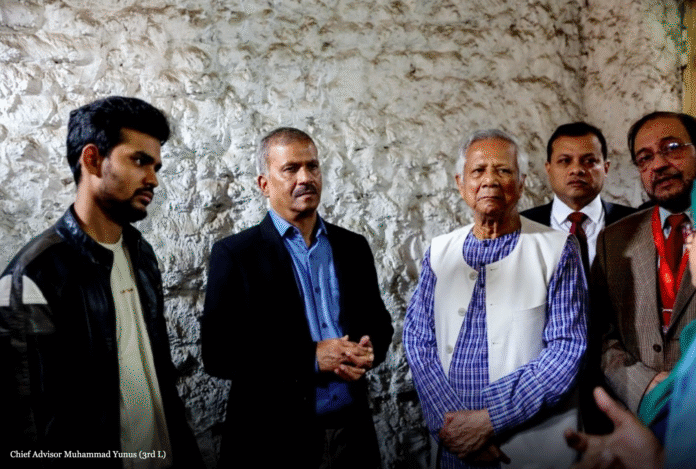One year after the ouster of former Prime Minister Sheikh Hasina, Bangladesh’s interim administration, led by Nobel Laureate Dr. Muhammad Yunus and backed by the National Citizen Party (NCP), faces growing criticism for failing to deliver on promises of democratic reform and human rights protection.
A new report from Human Rights Watch (HRW) paints a troubling picture of ongoing repression under the interim government. While enforced disappearances and state surveillance—hallmarks of the former Awami League government—appear to have declined, HRW says arbitrary arrests, political targeting, and a failure to implement institutional reforms now define the post-Hasina era.
“The hope of the thousands who braved lethal violence a year ago remains unfulfilled,” said Meenakshi Ganguly, Deputy Asia Director at Human Rights Watch. “Instead of reconciliation, the interim government seems more focused on retribution against its political rivals, particularly Awami League supporters.”
Mass Arrests Raise Alarm
Since the establishment of the interim government on August 8, 2024, over 92,000 people, the majority alleged to be aligned with the now-banned Awami League, have been implicated in criminal cases. Nearly 400 former ministers, MPs, and senior leaders are named in over 1,170 cases, many of which include vague charges and thousands of unnamed individuals.
Among the most controversial detentions is that of former Dhaka North mayor Mohammad Atiqul Islam, who faces 68 separate cases—36 of which relate to incidents that occurred while he was reportedly outside the country. Charges have yet to be filed in most cases, and detainees report being denied bail, medical treatment, and due legal process.
The continued use of the Special Powers Act, previously criticized during the Awami League era, has raised questions about whether the Yunus government is simply repeating the same authoritarian tactics under a new banner.
Inaction on Security Reform
Despite international pressure, the government has made little progress in reforming the security sector. HRW notes that while more than 1,400 people were killed during the five-week protest movement that preceded Hasina’s departure, only 60 police personnel have been arrested to date.
The Rapid Action Battalion (RAB)—widely condemned for human rights abuses under previous governments—remains operational, with no clear roadmap for accountability or reform.
Minority and Women’s Rights Under Threat
Attacks on minorities and marginalized communities have also increased. On July 26–27, mobs vandalized and looted at least 14 homes belonging to Hindu families in Rangpur district. Violations continue in the Chittagong Hill Tracts, and religious hardliners have targeted journalists, LGBTQ+ individuals, and women’s rights activists with impunity.
Despite forming 11 reform commissions, including one focused on gender equity, the interim government has yet to implement meaningful policy changes. Critics argue that the failure to uphold UN Security Council Resolution 1325, which mandates women’s full and safe participation in governance, reflects a deeper reluctance to institutionalize reform.
Awami League Supporters Targeted
The HRW report suggests that many of the detentions following the fall of the Awami League are politically motivated. In February 2025, a security operation dubbed “Devil Hunt” resulted in the arrest of over 8,600 people, mostly believed to be Awami League sympathizers.
The first major political trial—expected to begin on August 3—includes Sheikh Hasina herself, who will be tried in absentia. Legal experts and rights organizations have expressed concern that many of the charges lack substantiated evidence.
“The interim government appears to be using the justice system not to ensure accountability, but to eliminate political opposition,” the report states.
International Community Urged to Act
Human Rights Watch has called on foreign governments and the United Nations to make any future cooperation—including Bangladesh’s participation in peacekeeping operations—conditional on tangible human rights improvements.
The organization recommends:
Ending arbitrary detentions;
Supporting fair and transparent trials;
Disbanding repressive security forces like the RAB;
Ensuring judicial independence;
Promoting women’s rights and minority protections.
“No one underestimates the enormous challenges facing Bangladesh,” said Ganguly, “but the current path threatens to replicate past abuses under a different name. This is not the transformation the people demanded.”
As global pressure builds, critics warn that if the Yunus government and the NCP continue to prioritize political vengeance over reconciliation, the country risks slipping back into a cycle of repression—this time without electoral legitimacy or a clear democratic roadmap.


